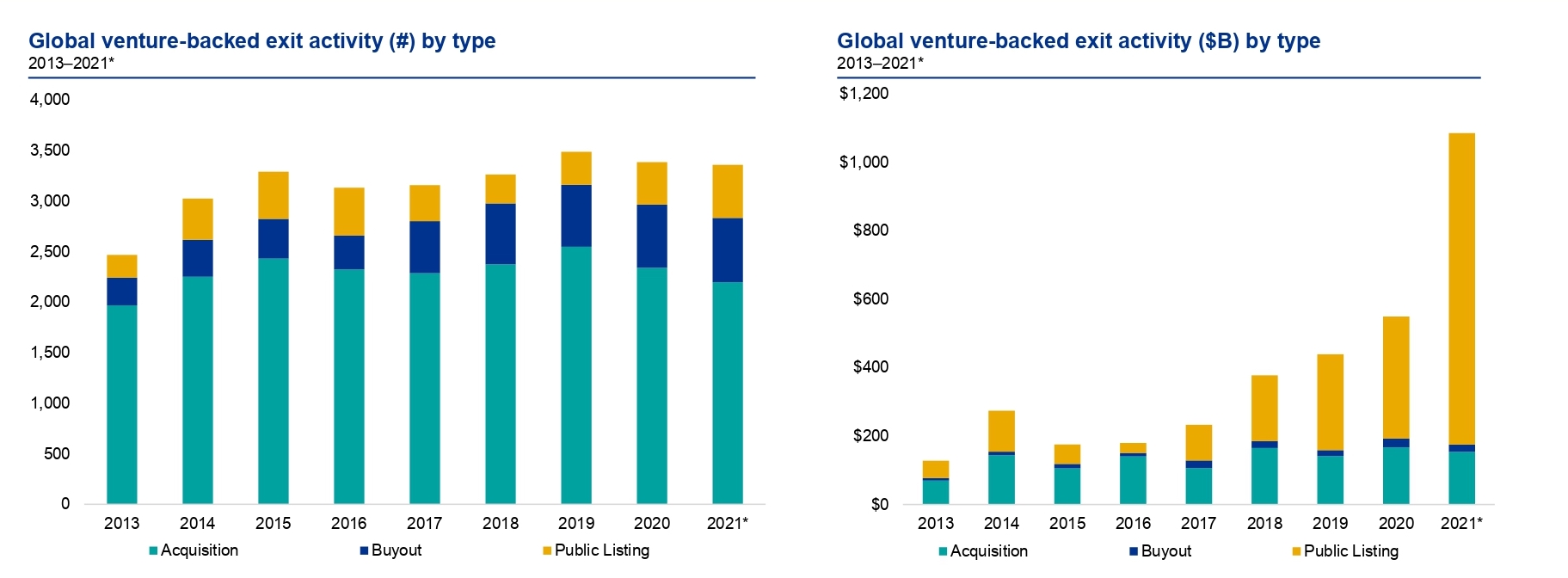BEHIND THE RISE IN LOGISTICS STARTUP EXITS IN SAUDI ARABIA
Setting Records
Recent months have seen numerous logistics start-ups emerge at the forefront of the industry, celebrating exits, or more notably successful IPO listings, as in the case with the Saudi-based food delivery platform Jahez. As the first initial public offering (IPO) by a Saudi tech-based startup, Jahez's listing represents the pinnacle of what has been a two-year regional race to fund the billion-dollar pandemic-led logistics craze.
The sector, which has garnered considerable interest from local and regional investors, is starting to reflect an increasing interest for exits as both Saudi-based logistics companies Saee and Shgardi announce their plans to take their companies public. Given that the first MENA unicorn to enter Nasdaq (the UAE-based SWVL) is also a logistics and transportation startup, the need to understand what makes the sector an exit-ready industry is worth investigating.
On the local level, the incredibly high $2.4 billion valuation for Jahez is the real test for how much the Saudi public market is willing to support that consumer-driven sector, and how risk-averse are Saudi entrepreneurs today in planning their exits.
"Every single founder is following Jahez's performance very carefully to see how the market will react to its valuation. Will it continue to attract more investors? Is it going to have an impact on the rest of the startups? At the end of the day, it's a positive and proud moment for all Saudi entrepreneurs, and a measure that there is still an incredible growth potential in the logistics sector" says Abdulrahman Alafaliq, founder and CEO of the Saudi-based logistics startup Postage.
He founded the company in 2019 as a B2B last-mile logistics startup offering same-day delivery between various Saudi cities. In 2021, the company became a Wa'ed portfolio company after the center led the Seed round during the summer.
Alafaliq believes that one of the reasons behind the rise in logistics startup listings is the "tough competition" that exits within the sector, citing Jahez's need to "sustain its growth by attracting more funds" through selling new shares.
Alternatively, Saee's CEO and founder Tariq Alturkestani highlights another perspective driving his decision to float his company. For him, listing Saee comes as reinforcement for his desire to cement a lasting market presence within the region - a presence that might have otherwise been diluted during a larger acquisition.
"What I'm trying to do today is give a clear message that Saee is here to stay, and that we're here to make an impact for our employees and our economy. After 50 years, I want to see Saee present in the market. It will take us decades to do, but we will reach there," says Alturkestani, who's planning the direct listing of his startup on Nomu for the end of 2022.
Whether driven by sectoral competition or a desire to strengthen market presence, the emerging enthusiasm among Saudi founders to list their companies still reflects a highly interesting trend wherein an emerging cohort of younger startups are seeking to lead the exits wave.
Breaking Molds
According to research conducted by the University of Florida, the median age of a tech startup filing for an IPO in 2021 is twelve years old, a mostly steady rate since the year 2008. Those companies were much younger in 1999, about four years on average and hitting $17 million in total sales -a record closer to the current Saudi startup scene.
Prior to its public listing, Jahez was a five-year-old company raising $36.9 million in a Series A round. Saee is said to close its pre-listing as a pre-Series B round, and Shgardi, the youngest of the two, remains a pre-seed company launched in 2019.
The emergence of a new wave of early-stage founders ready to take their companies to the public market implies, at least theoretically, that in contrast to the entrepreneurs leading other sectors, these founders are less worried about being fully transparent on their internal operations.
It also means that new startup owners are entering the market less worried about having external governance overseeing those operational processes - from financials, to employee relations, to offline procedures.
"Limited liability companies, which is the case for Ay Makan, enjoy less governance. When it's a joint stock company, the level of governance increases with bigger shareholder rates, and government bodies become more involved in regulation," says Abdullah Aladdad, founder and CEO of the Saudi-based supply chain and logistics startup Ay Makan.
Since 2018, the startup was able to achieve a 300% growth rate on an annual basis, according to Aladdad, serving over 180 Saudi cities and hitting SAR 15 million in revenues today.
"All of this governance will ultimately work to offer better discipline for the startups. It protects both the startup and its shareholders, and it can help them prepare them to move [from the parallel market] to the primary market," he adds.
When a company lists its shares, one of the foundational changes that it quickly needs to endure is the change in its board structure. Founders move from having full ownership of the company to welcoming new shareholders and board members who now share voting rights. This marks the moment a company moves from being private to being public.
The tension is known to occur between founders and new board members after a company goes public, but according to both Alafaliq and Aladdad, local entrepreneurs are starting to realize the benefit to having extensive supervision.
"Founders used to be attached to the idea of autonomy and the mentality of being your own boss used to be popular. Today's generation of entrepreneurs wants a board that challenges them; they welcome that governance aspect of a public listing because they know it will put the company under massive peer pressure to outdo its own records," says Alafaliq.

In an emerging startup ecosystem like Saudi Arabia's, which only became truly active around 2014, taking a bold step like a public listing is an ambitious milestone on its own. It can support local efforts to align the metrics of the Saudi ecosystem with the rising global records.
The fact that the startups leading the movement happen to be young, early-stage companies themselves, makes the market trend a truly a visionary one.
Repeated research continues to consider local startup exits as "the ultimate criterion" to measure the competence of a startup ecosystem. Exits have subsequent, multiplier, "entrepreneurial recycling effects" that go beyond the capital raised during the listing period. Having more serial entrepreneurs who've exited their first companies and are now building new startups is one example; another is the percentage of past employees who also start utilizing their ESOP shares to create new businesses.
Regardless of the intention of the founder or the stage of the startup, encouraging more public listings has proven economic and entrepreneurial ripple effects that can transform the Saudi startup ecosystem. They can increase sectoral innovation, investor and founder confidence, and raise the standards for healthier and more agile startup models.
